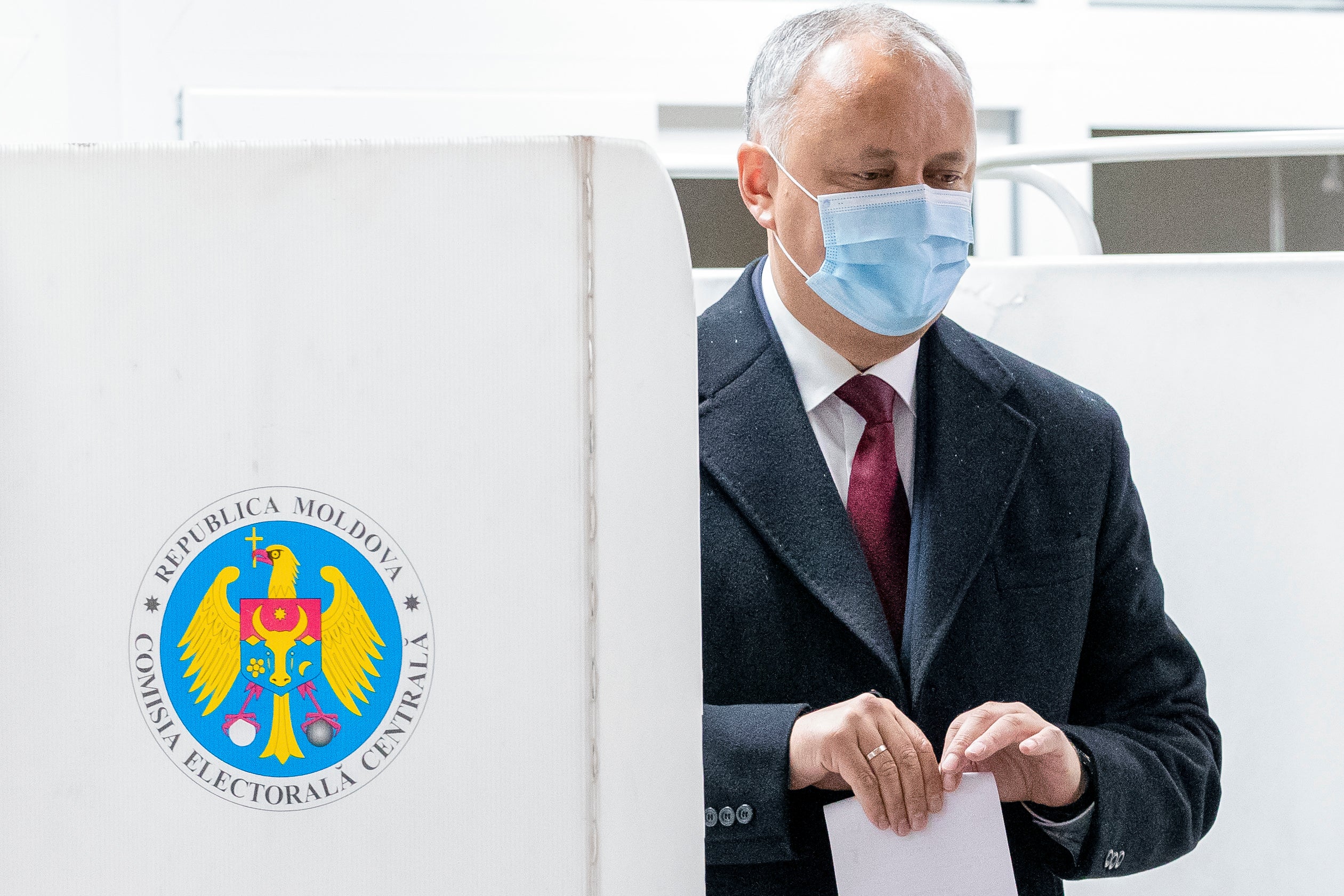Moldovans vote for president, pro-EU or pro-Russia visions
Voters in Moldova cast ballots in a presidential election that is perceived as a referendum on two divergent visions for the future of the small Eastern European nation

Voters in Moldova cast ballots Sunday in a presidential election that is perceived as a referendum on two divergent visions for the future of the small Eastern European nation.
Eight candidates were vying in the race for the head of state post. The staunchly pro-Russia incumbent, President Igor Dodon and a pro-Western former prime minister, Maia Sandu were widely seen as the front-runners. However, neither appeared likely to secure enough votes for an outright victory, and the two are expected to face each other in a Nov. 15 runoff.
The first election results were expected overnight.
Dodon and Sandu had been rivals since he narrowly defeated her in the 2016 presidential race.
After voting Sunday, both said they wanted to lead impoverished Moldova to a long-elusive political stability and economic recovery.
Dodon, who was identified as the preferred candidate by Russian President Vladimir Putin, pointedly stressed that that goal depended on maintaining an “equilibrium” in relations with all its “foreign friends and partners.”
Ever since gaining independence from the Soviet Union in 1992, Moldova has been divided between those favoring closer relations with the European Union and those who prefer stronger links with Moscow.
In 2014, while run by a pro-European coalition, the country of 3.5 million people signed a deal on closer political and economic ties with the EU. However, Brussels has since been increasingly critical of its progress on reforms.
Sandu, a former World Bank economist, promised during the campaign to secure more financial support from Brussels if she becomes president.
Bookmark popover
Removed from bookmarks